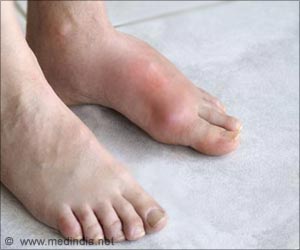
As climate change continues to drive up summer temperatures, a decade-long study from Spain has uncovered a startling revelation: on the hottest days, the risk of hospitalization for individuals with metabolic disorders such as diabetes, hypertension, and obesity nearly doubles. This research not only underscores the increased vulnerability of these patients to extreme heat but also highlights the urgent need for tailored public health strategies to protect them during scorching summer months (1✔ ✔Trusted Source
Diabetes and Hot Weather
).
Researchers from the Barcelona Institute for Global Health analyzed over 11.2 million emergency hospital admissions from 48 provinces in mainland Spain and the Balearic Islands between 2006 and 2019. The study focused on hospital admissions during the summer months (June to September), considering daily average temperatures, relative humidity, and air pollutant levels, including PM2.5.
Advertisement
Impact of High Temperatures
1. General Impact of High Temperatures: High temperatures were found to have a generalized impact on cause-specific hospitalisations. Children under a year and adults older than 85 years were the most vulnerable, although all age groups experienced heightened risks.
2. Metabolic Disorders: On the hottest days, the risk of hospitalization for individuals with metabolic disorders nearly doubled compared to days with comfortable temperatures. Conditions such as diabetes and hypertension were significantly affected by extreme heat.
3. Obesity: People with obesity exhibited less efficient heat loss responses due to body fat acting as an insulator, making them more susceptible to heat disorders.
4. Air Pollution: Higher levels of air pollution further increased the risk of hospital admission for individuals with metabolic disorders, including diabetes.
Advertisement
Gender-Specific Risks
The study found gender-specific differences in hospitalization risks related to extreme heat.
Men: Higher risk of hospital admission due to injuries.
Women: Higher risk of hospitalization from infectious, hormonal, metabolic, respiratory, or urinary diseases. Women have a higher temperature threshold above which sweating mechanisms are activated, making them more susceptible to the effects of heat.
Advertisement
Heat-Related Health Impacts
Under heat stress, the body activates cutaneous vasodilation and sweat production to lose heat. These responses can affect individuals differently based on age, sex, and pre-existing health conditions. The underlying mechanisms by which heat triggers adverse health outcomes remain unclear, but they are related to how the body regulates its temperature.
Increased risk of hospitalization due to conditions like kidney failure, kidney stones, and urinary tract infections. Higher temperatures also raise the risk of hospitalization in people with sepsis, where chemicals released in the blood to fight infections trigger inflammation throughout the body.
The study underscores the critical need for targeted health interventions and policies to protect vulnerable populations, particularly those with metabolic disorders, from the adverse effects of extreme heat. With the increasing frequency of heat waves due to climate change, understanding and mitigating these risks becomes even more essential.
Reference:
- Diabetes and Hot Weather – (https://www.diabetes.org.uk/guide-to-diabetes/managing-your-diabetes/hot-weather)
Source-Eurekalert



